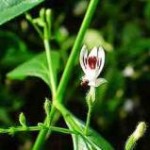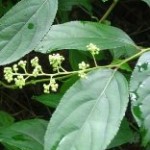The normal development and maintenance of the prostate is dependent on androgen acting through the androgen receptor (AR). In the normal prostate, the rate of cell death is 1–2% per day, and replaced with new ones. This activity is part of normal prostate function and is regulated by AR. Thus, maintaining natural balance in the function of AR is a key to prostate health.
AR exists as a phosphoprotein and its function is tightly regulated. When testosterone or DHT is present, it binds to complex, which causes to dissociate from heat shock protein (Hsp), binds to DNA at specific location. This forms ligand-dependent transcription factor, which can increase or decrease the regulation of gene.
Both androgen dependent and independent prostate cancers can be successfully treated with natural medicines. Prostate cancer cells depend primarily on the AR for growth and survival. AR is the central signaling pathway in prostate cancer and is essential in both androgen dependent and independent prostste cancers. Therefore, novel therapies that can suppress AR transcriptional activity are needed for treatment of advanced prostate cancer.
Hormone treatment (anti-androgens) used in prostate cancer therapy inhibit AR activity via largely unknown mechanisms. Initially the treatment inhibits tumor growth effectively and the PSA level goes down, but the PSA will start climbing again, and that is usually the first sign that the treatment is beginning to fail. It ultimately fails and leads to the emergence of castration resistant prostate cancer (CRPC). Presently, no truly effective treatment for CRPC has been discovered. So why did the hormone treatment work for a while and then stop?
In fact, ARs can get conflicting orders from a lot of different areas and turns out to be far more versatile than scientists realized. AR acts differently in different cells in prostate tissue. However, since current treatment acts non-specifically on all the cells having ARs in the prostate, blocking AR will give mixed results.
It turns out that when common cancer drugs are used to block hormone receptors, they “turn off” epithelial cells, which form the membranous tissue covering internal organs. By doing this, these drugs remove one of the body’s natural protections that prevent prostate cancer cells from spreading in the first place. And so the cancer cells are more likely to metastasize and invade other tissues. Overexpression of AR was found to enhance the growth of prostate cancer cells and the expression of AR target genes under low androgen conditions. AR can “turn on” a totally different set of gene signals to fuel aggressive prostate cancer, requiring no androgen at all to perpetuate the process.
Androgen receptor rediscovered: the new biology and targeting the androgen receptor therapeutically.
AR relies on interactions with multiple proteins, such as the heat shock protein (or stress protein) Hsp90 and p23, which help fold it into its active form. p23 and Hsp90 are telomerase-associated proteins that bind to the catalytic subunit of telomerase. Blockade of this interaction inhibits assembly of active telomerase. Also, a significant fraction of active telomerase from cell extracts is associated with p23 and Hsp90. p23 and Hsp90 dramatically increase during tumorigenic conversion.
The heat shock protein Hsp90 stabilizes many proteins involved in cancer cell growth. Unfortunately, the anti-Hsp90 drugs developed to date have proven to be too toxic to be taken by humans. Heat shock proteins gained their terminology because of their responses to environmental stresses arising from heat shock or chemicals.
 Andrographolide is the main bioactive component of the medicinal plant kalmegh (andrographis paniculata). Andrographolide is an extremely bitter substance extracted from the stem and leaves of the kalmegh, which is grown for medicinal purposes in China and India. Andrographolide prevents the binding of Hsp90 to AR, resulting in proteasome-mediated AR degradation. Furthermore, andrographolide inhibits castration-resistant cell growth by reducing AR expression and activity. Thus, andrographolide can be used as a potential therapeutic agent for prostate cancer by inhibition of AR signaling.
Andrographolide is the main bioactive component of the medicinal plant kalmegh (andrographis paniculata). Andrographolide is an extremely bitter substance extracted from the stem and leaves of the kalmegh, which is grown for medicinal purposes in China and India. Andrographolide prevents the binding of Hsp90 to AR, resulting in proteasome-mediated AR degradation. Furthermore, andrographolide inhibits castration-resistant cell growth by reducing AR expression and activity. Thus, andrographolide can be used as a potential therapeutic agent for prostate cancer by inhibition of AR signaling.
Previously it was thought that p23 and Hsp90 work together to activate AR, but latest research shows that p23 also increases activity of the AR independently. Crucially this means that drugs that block p23 such as Celastrol could be effective at treating prostate cancers that have become resistant to Hsp90 inhibitors. Celastrol is a triterpenoid antioxidant compound isolated from the thunder god vine (tripterygium wilfordii).
 Triptolide is the active ingredient purified from this medicinal plant. It has been shown in animal models to be effective against cancer, arthritis and skin graft rejection. In fact, triptolide has been shown to block the growth of all 60 cancer cell lines at very low doses, and even causes some of those cell lines to die. It was also shown to sensitize cells to death induced by a variety of other agents.
Triptolide is the active ingredient purified from this medicinal plant. It has been shown in animal models to be effective against cancer, arthritis and skin graft rejection. In fact, triptolide has been shown to block the growth of all 60 cancer cell lines at very low doses, and even causes some of those cell lines to die. It was also shown to sensitize cells to death induced by a variety of other agents.
ProstaZym contains the purest, most highly bioavailable extracts of thunder god vine (tripterygium wilfordii) and kalmegh (andrographis paniculata)
Functional requirement of p23 and Hsp90 in telomerase complexes.
Stable association of hsp90 and p23, but Not hsp70, with active human telomerase.
The co-chaperone p23 arrests the Hsp90 ATPase cycle to trap client proteins.
Andrographolide, a potential cancer therapeutic agent isolated from Andrographis paniculata.
Andrographolide targets androgen receptor pathway in castration-resistant prostate cancer.
Triptolide and its expanding multiple pharmacological functions.